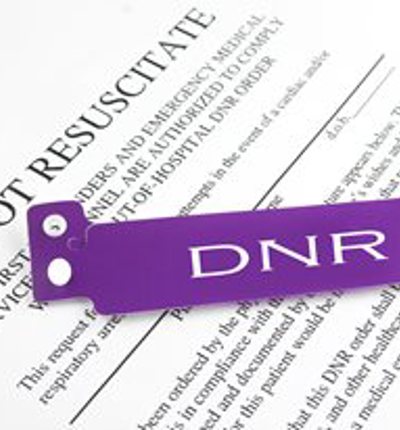
Legal challenge to government's lack of guidance on DNRs during coronavirus pandemic
A legal challenge has been launched against the government for failing to use their emergency powers to ensure patients and their families understand how decisions are made about Do Not Resuscitate (DNR) orders in light of the current coronavirus pandemic.
Posted on 06 May 2020
The legal challenge is being brought by Kate Masters, daughter of the late David Tracey, who brought a successful judicial review in 2014 establishing a violation of his late wife’s Article 8 rights in relation to an imposed DNR order. This case established that that there is a legal duty to consult with and inform patients if a DNR order is placed on their records except in very narrow circumstances.
Kate decide to launch the legal challenge following numerous reports in the media of DNR notices being imposed in seemingly blanket ways, without consultation with patients or their families and showing a great amount of confusion within the general public over the need for consent. She believes that decision making around DNRs has become opaque, inconsistent and deficient. In addition, she is greatly concerned about her own position due to her ongoing health problems and serious conditions affecting her family members and feels at significant risk of a DNR decisions being made without proper process.
In a letter before action sent to the Secretary of State for Health and Social Care Kate argues that blanket DNRs are unlawful and that without action from the government on the issue herself, her family members and many others are at a considerable risk of having a DNR imposed on them without full information being given in advance, without a proper consultation and without any information as to what to do if the decision is disagreed with. Local NHS Trusts and their staff are already under unprecedented burden dealing with the virus and she believes a lack of clear national guidance or DNR policy further adds to this burden.
Article 8 ECHR, the right to respect for your private life, requires that the law in relation to the imposition of DNRs is sufficient clear and certain. The decision to impose a DNR must be taken by reference to clear and accessible criteria and information must be addressed to patients so they can know in advance how decisions will be made. Kate argues in her letter that her own situation and that of many others shows these lawful requirements are not being met, and human rights are being violated, or at significant risk of being violated on a widespread basis.
In her letter Kate argues that there is an easy to achieve remedy to this, namely the Secretary of State using emergency powers contained in s. 253 of the NHS Act 2006 to ensure that patients’ Article 8 rights in relation to DNRs are protected.
An emergency direction requiring all healthcare professionals to provide prescribed information could set out that DNRs cannot and must not be imposed unless:
- The patient and/or their family/carers have been informed that it is appropriate to consider CPR and why
- The patient and/or their family/carers are provided with an opportunity to discuss their views and wishes regarding receiving CPR with the healthcare professional making the decision
- The patient and/or their family/carers are provided with clear information as to how the healthcare professional will take into account their views/wishes, the relevance of clinical judgment regarding efficacy of CPR (including being clear consent is not required) and how resource constraints are taken into account.
- The patient and/or their family/carers are informed of the DNACPR decision and the reasons why (which must be individual to the patient)
- The patient and/or their family/carers are informed they can request a second opinion if they disagree with the decision.
A response from the Secretary of State has been requested by 7th May 2020. If no satisfactory response is received Kate will consider bringing a judicial review case in the High Court.
Kate said:
“I have watched with alarm as reports of blanket DNR orders in care homes and failures to consult with patients and their families have been reported in the news since the start of the coronavirus crisis. After all that my dad did to fight to clarify the law regarding DNRs I am determined to ensure that my human rights and those of others are not breached due to a lack of government direction.”
Merry Varney, solicitor at law firm Leigh Day, added:
“We are living through unprecedented times dealing with the coronavirus, which due to its severity, is placing a larger number of people at significant risk to their life and giving rise to the need for difficult discussions about care and treatment where someone’s life is likely to come to an end.
“DNRs imposed in circumstances where patients and their families have no or little information, and no consultation, often lead to a complete breakdown in trust and numerous stories reported in the media show how common it is that patients and families believe these cannot be imposed without consent. Healthcare professionals are already overburdened, our client believes it is time for the government to step up and give national guidance that will ensure consistent and lawful decision-making at a local level and also ensure patients’ fundamental human rights are being upheld.”

